9 Foods to Eat for Gut Health (& What to Avoid)
If you’re struggling with gut issues, you’re not alone. The good news is that there are certain foods that can help heal your gut. In this blog post, I share some gut-healing foods to include in your diet. I also share which foods to avoid for various digestive problems.
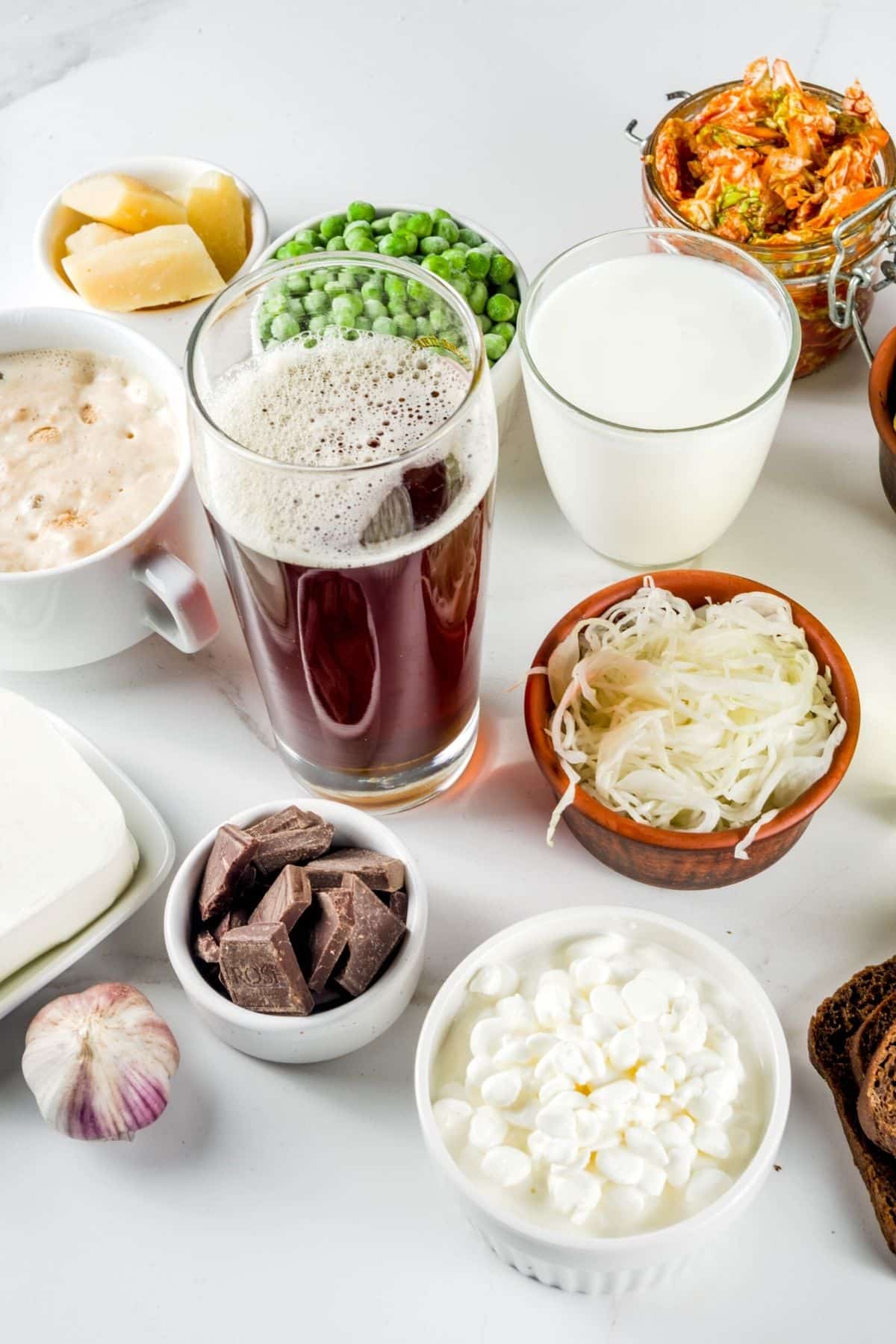
Gut Healing Foods
Here are some gut health foods that can help improve overall digestion.
1. Bone broth
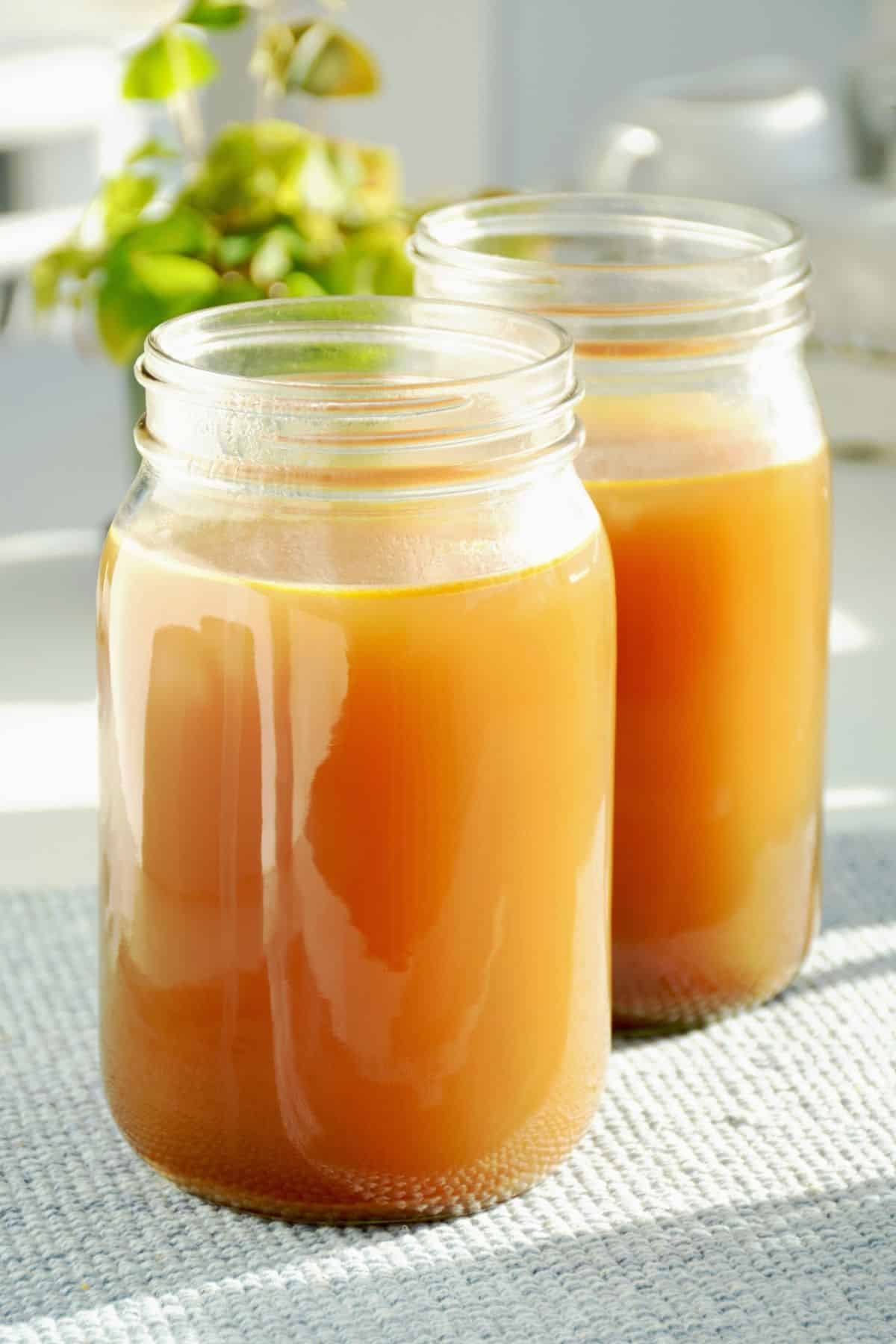
Made by simmering bones and connective tissue over an extended period, bone broth is super nutritious!
Although the exact content will vary depending on the ingredients used, bone broth is generally packed with a variety of minerals and compounds known to help promote gut health. These include collagen and gelatin, along with three amino acids – glutamine, proline, and arginine.
Together these nutrients can help heal damage to the lining of the intestines, prevent leaky gut syndrome, support the immune system, and keep inflammation at bay.
When making bone broth, try to use a mixture of bones for maximum nutrition. And don’t forget to add vinegar to the bones as they simmer, because this is what draws the nutrients from the bones and into the water.
See this Bone Broth recipe or try my recipe for Bone Broth Rice.
The only caveat to consuming bone broth is that it is high in histamines. Bone broth and other fermented foods are considered high histamine foods and are not part of a low histamine diet. Allergy symptoms can also be a reaction or side effect of collagen protein which is found in bone broth.
So, start with just a few ounces of bone broth to see how you react. Then, increase the amount you consume a few ounces every day until you reach about 6-10 ounces per day.
2. Dandelion greens or bitter greens
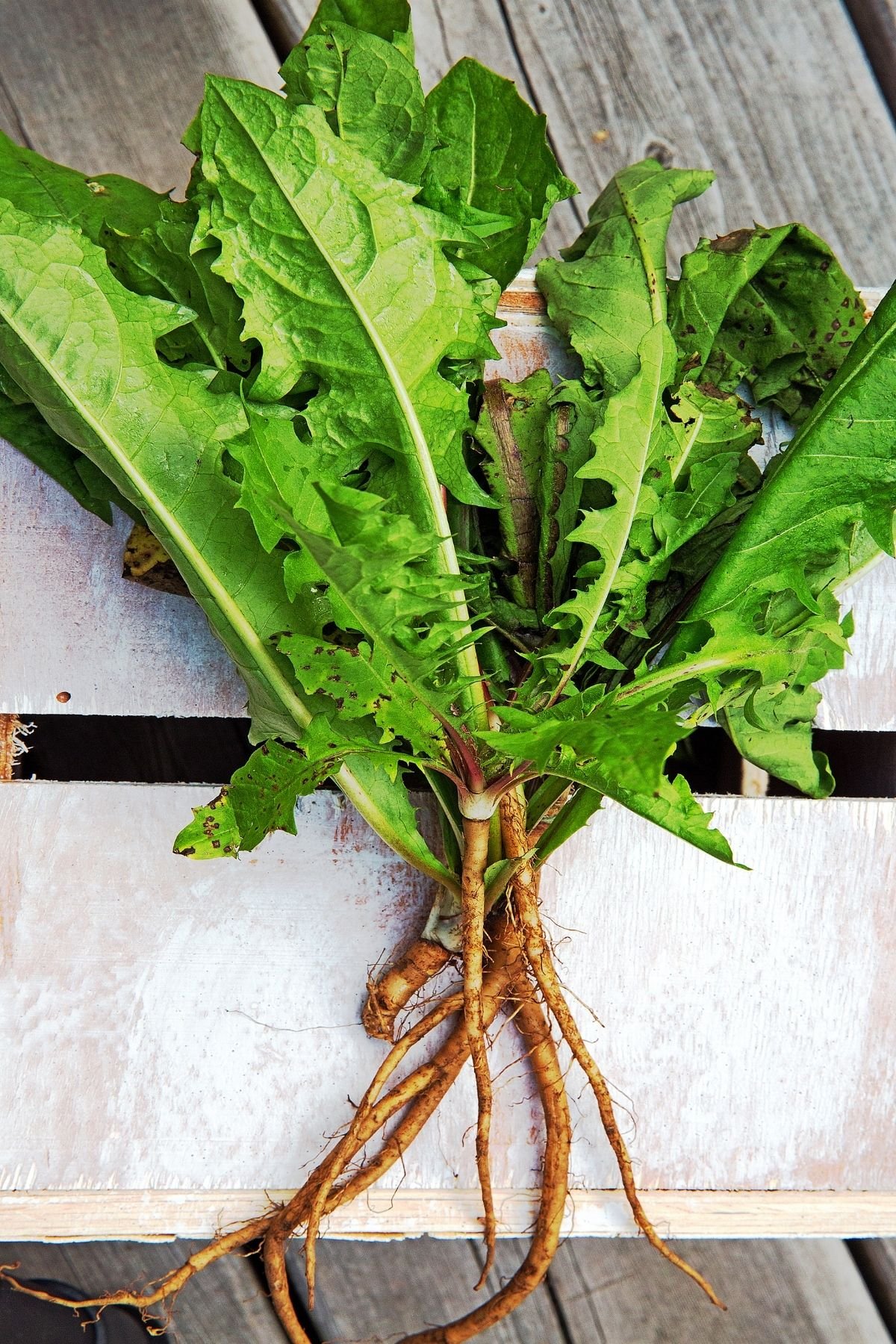
“Bitters” like dandelion greens and other bitter leaves have been used throughout history to aid digestion. This is because they may increase the production of stomach acid and digestive enzymes.
Although no studies on humans have been carried out, research using animals has shown that dandelion greens may also be useful in reducing inflammation.
What’s more, they contain a prebiotic fiber called inulin, which has been shown to help food move smoothly through the digestive system and reduce the risk of constipation.
Aside from increasing their digestibility, cooking dandelion greens reduces their bitterness. Try boiling them for a few minutes, then sauteing them in a hot pan with garlic and olive oil for 3 minutes more. Serve as a side dish, or try stirring the cooked greens into scrambled eggs.
I love adding greens to smoothies which can make smoothies good for weight loss.
See my list of the best green vegetables. Greens are also on my list of the best progesterone-increasing foods.
Ideally, try to consume at least 1-2 servings of green vegetables per day (and up to 3-4 servings of veggies overall per day) for optimal health.
3. Probiotic foods
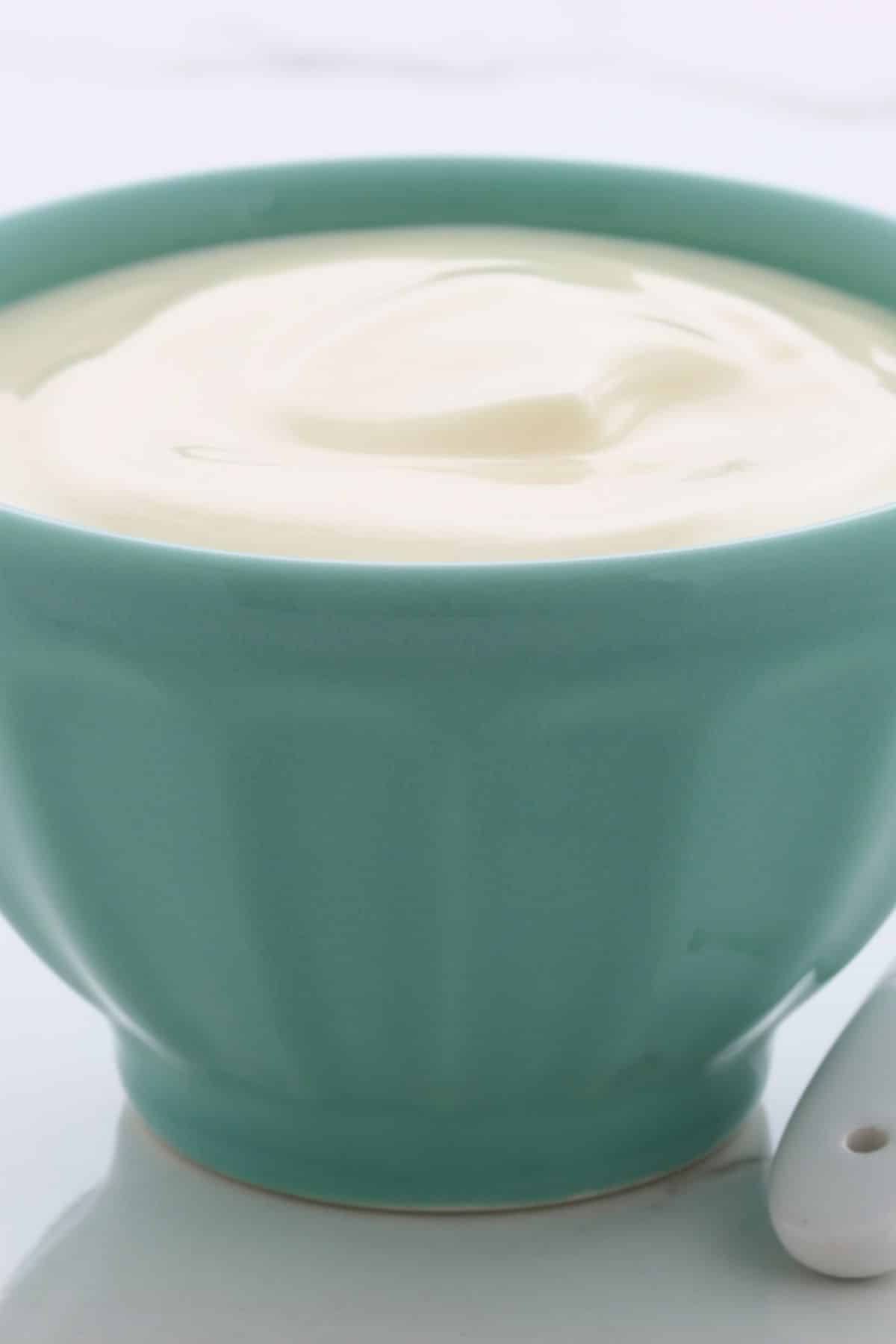
You’ll quite often see the words “contains probiotics” on yogurts and yogurt drinks. But what does that actually mean?
Well, probiotics are “good” live bacteria that you can consume to boost the number and variety of bacteria in your gut to improve your digestive health. Probiotics have other benefits, too, as they help our bodies absorb nutrients and give our immune systems a boost.
When it comes to probiotic foods, you have lots to choose from. Besides yogurt and yogurt-based drinks like kefir, you could try:
- fermented vegetables, like kimchi or sauerkraut, both of which are made with cabbage
- miso (fermented soybeans)
- pu-erh tea – a fermented tea from the Yunnan Province of China
- kombucha – a fermented tea drink from Manchuria
- some cheeses (look for the words “live cultures” or “active cultures” on the packaging)
You can also check out my full list of the best foods with natural probiotics. Try to include at least one serving of probiotic foods like yogurt or fermented vegetables like sauerkraut per day. You may also need to take a probiotic supplement; speak to your healthcare provider if you have questions.
4. Fatty fish
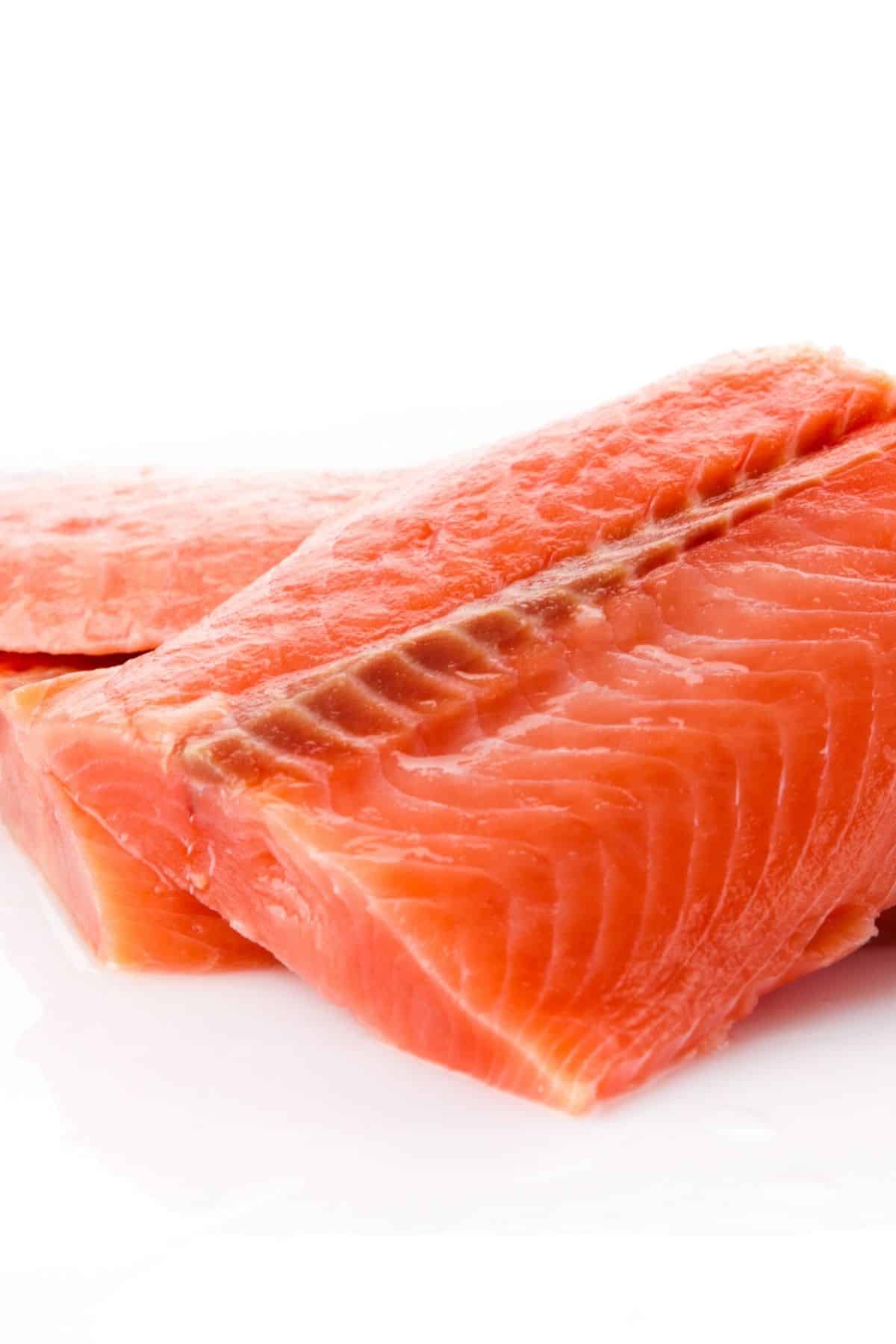
Research has shown that the omega-3 polyunsaturated fatty acids (PUFAs) found in fatty fish are great for your digestive health!
They can help balance the bacteria in your gut and support the production of the compounds your body needs to fight inflammation. They can also boost the immune system and repair damage to the intestinal wall which could trigger leaky gut syndrome.
Examples of fatty fish high in omega 3s include:
- salmon
- sardines
- Atlantic mackerel
- herring
- albacore tuna
If you don’t like eating fish, then you can enjoy similar benefits from taking omega-3 supplements.
See my recipes for Instant Pot Salmon and Rice, Salmon Salad with Mayo, or Air Fryer Salmon for some easy options.
5. Raw dairy products
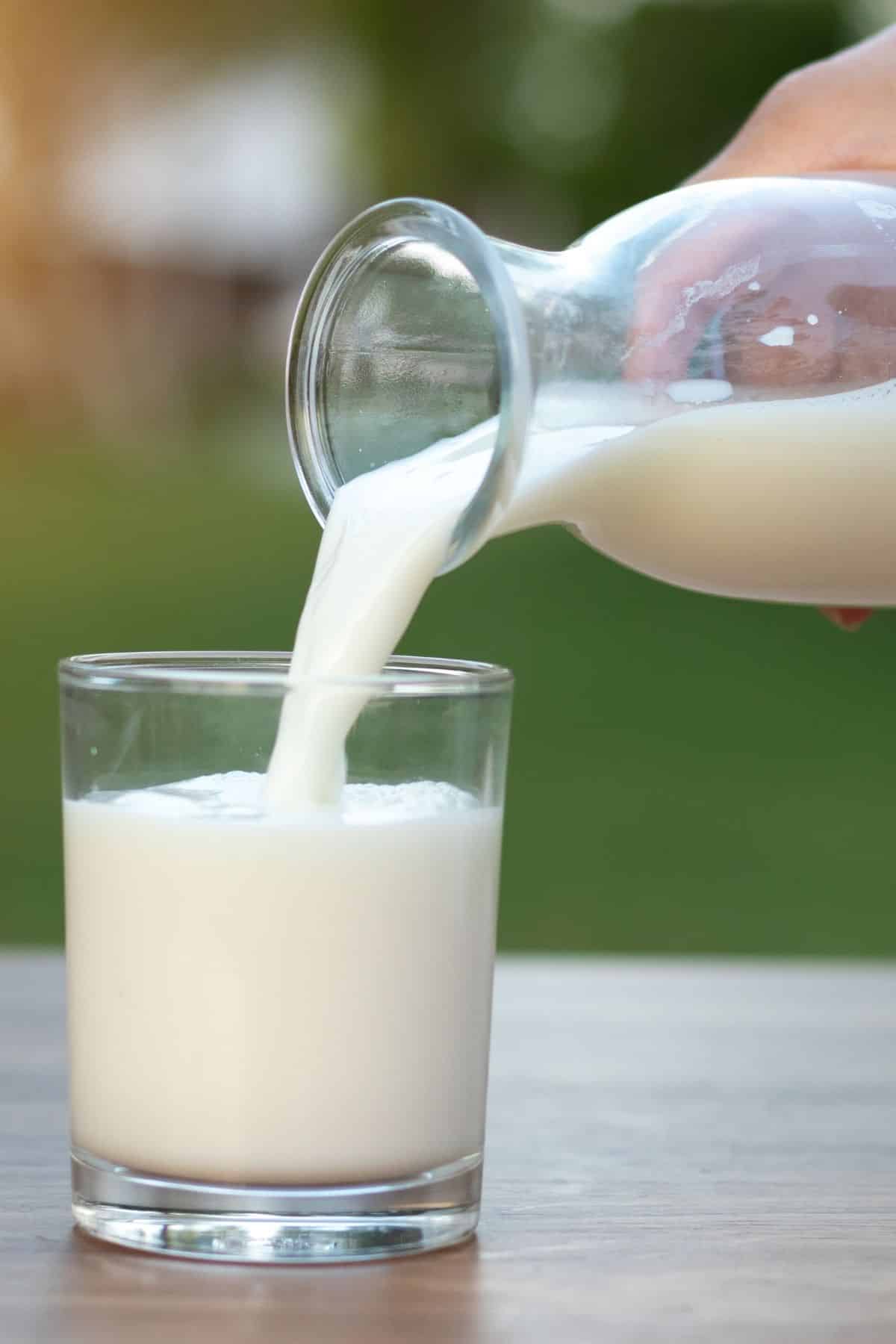
Raw dairy products like raw butter, raw cheese, raw milk, and raw cream contain living bacteria that act as prebiotics, boosting the number and diversity of “good” bacteria in the gut.
Raw dairy products are those that have not gone through the pasteurization process developed to kill any harmful organisms they may contain. For this reason, raw milk is banned in some countries and states, as it is seen that the risk from these pathogens may outweigh any benefits.
But, for many people, raw milk and raw milk products can be healing to the gut and maybe be worth the risk of consuming them raw.
For those of us on dairy-free diets, consuming dairy may not be an option. But, unless you have a dairy allergy or your doctor has told you to avoid dairy, it may be worth trying to re-introduce dairy into your diet as a gut healing food.
6. Coconut milk
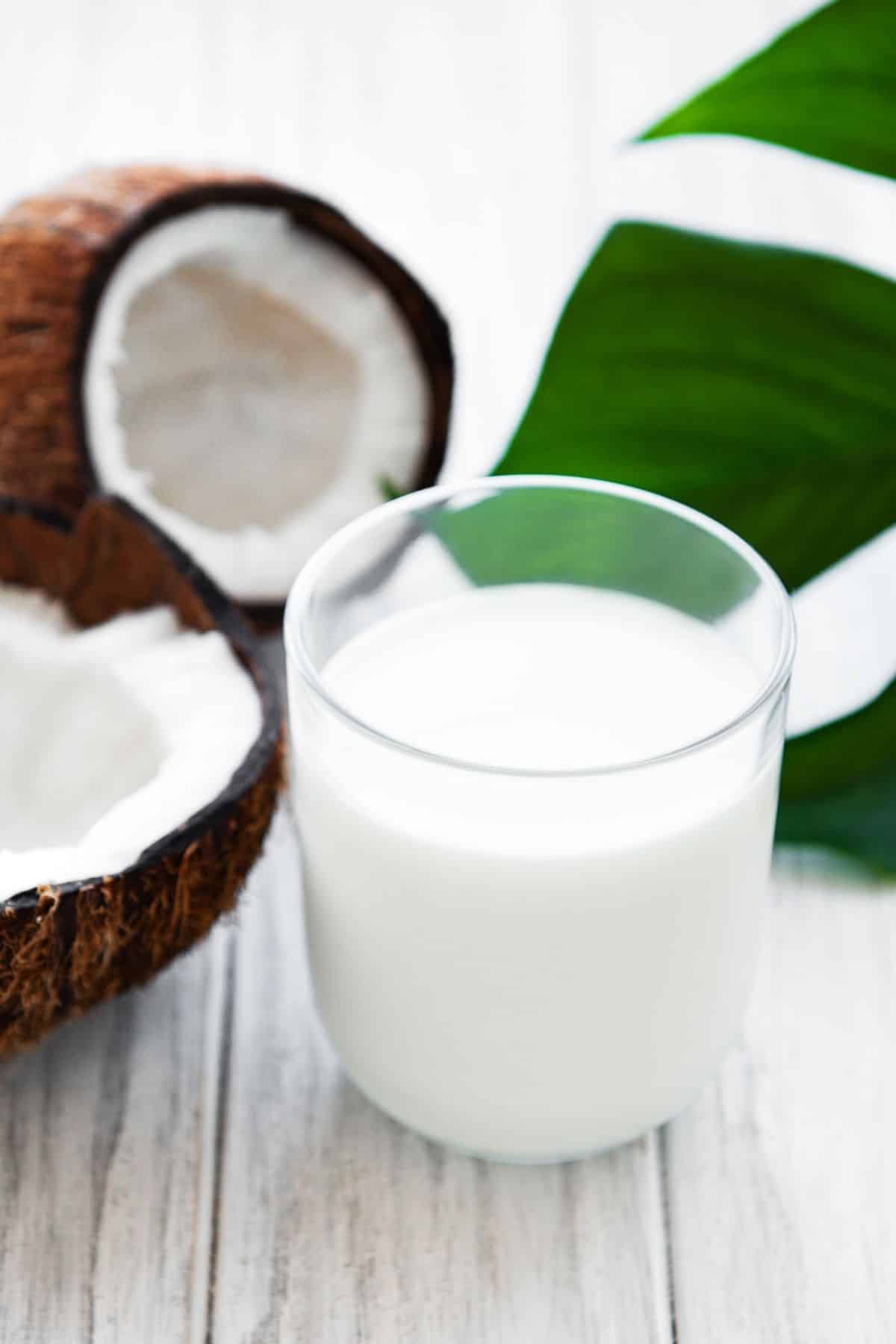
Coconut milk – made by mixing coconut flesh with water – has several gut-healing benefits!
It is rich in medium-chain saturated fatty acids (MCFAs), around 50% of which are a type called lauric acid. Your body converts this into a compound called monolaurin, which studies have shown can reduce stomach ulcers. It is also believed to reduce inflammation and protect the lining of the stomach.
You can use coconut milk in everything from your daily coffee to smoothies. For the healthiest milk, make your own by blending 1 cup of unsweetened shredded coconut with 2 cups of hot water, then straining through muslin or cheesecloth. See my Coconut Milk recipe.
7. Probiotic supplements
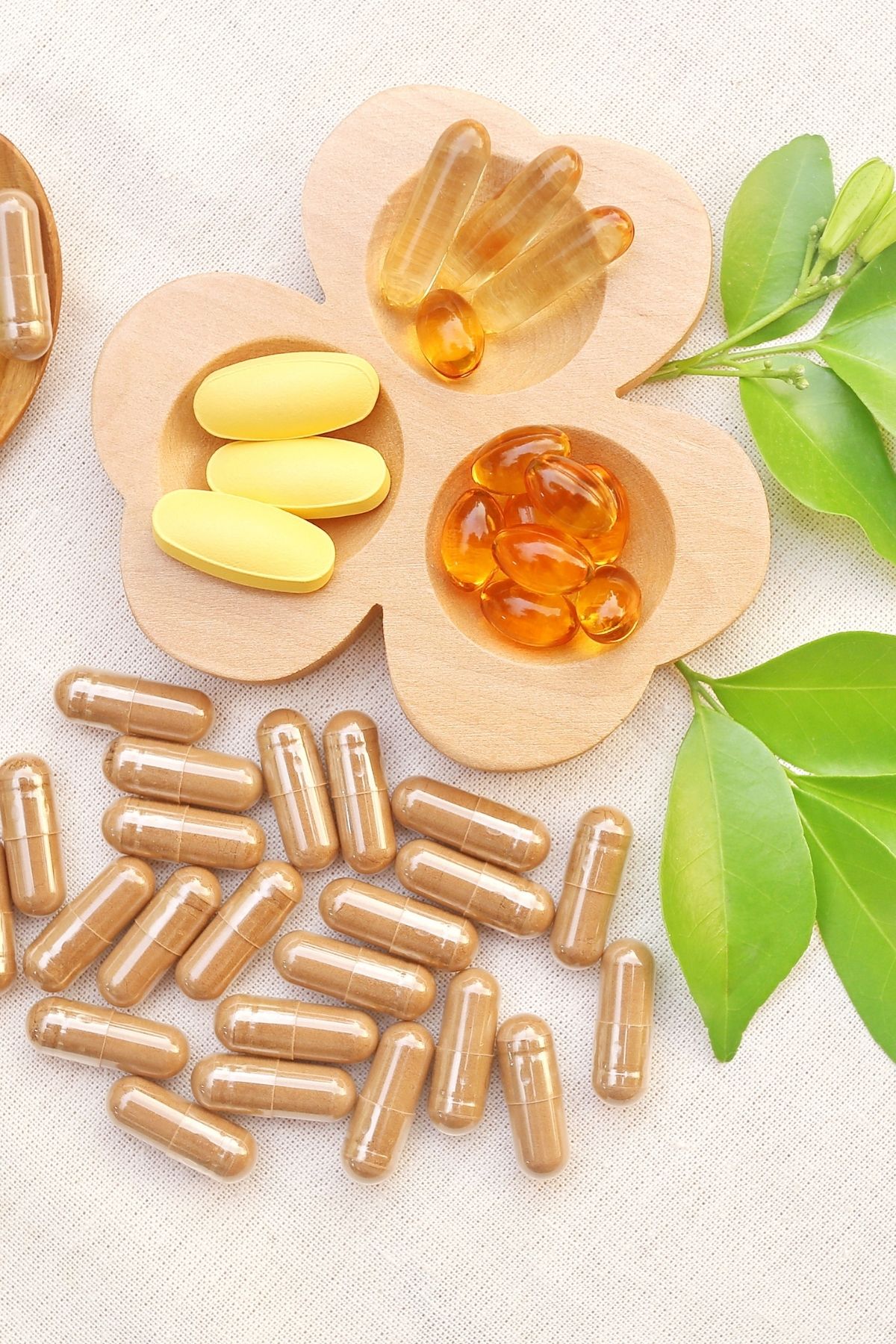
Food sources of probiotics are the most beneficial for your health. But if cultured milk or fermented foods do not appeal to you, then taking probiotic supplements is a great way to still enjoy their benefits.
It’s a good idea to discuss this with your healthcare provider before deciding which supplement to take. Whereas probiotic foods tend to contain a range of bacterial strains, supplements are usually more specific.
If you take one containing a strain that hasn’t been studied for your particular condition, you may find that it doesn’t help relieve your symptoms at all!
Make sure you store probiotic supplements carefully, follow the dosage instructions, and use a resource like Consumer Lab to make sure the ingredients have been independently verified.
8. Prebiotic foods
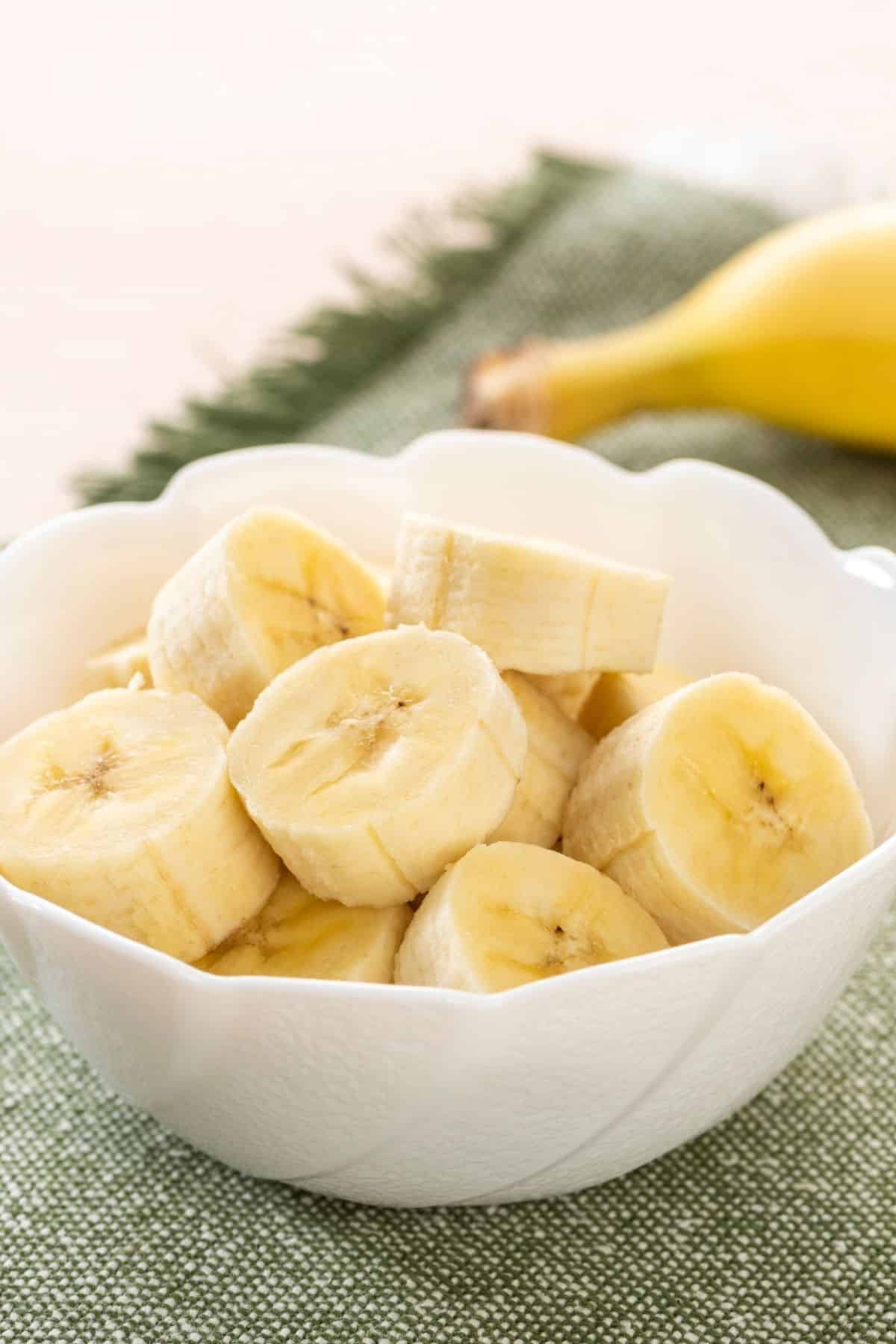
Prebiotic foods are essentially those containing dietary fibers that feed the probiotics (beneficial bacteria) in your gut, stimulating their growth and increasing their activity.
Although prebiotics can be manufactured in supplemental form, the best sources are natural. Fruits and vegetables are rich in prebiotics, with particularly good sources being:
- onions
- leeks
- legumes
- bananas
- garlic
- leafy greens
- kiwi fruit
A diet rich in prebiotics isn’t good for all gut issues, however.
Some prebiotics are FODMAPs (fermentable oligosaccharides, disaccharides, monosaccharides, and polyols). These are carbohydrates that the body can’t easily digest, so they may worsen the symptoms of conditions like IBS. You might want to speak to your healthcare provider to see if prebiotics are right for you.
In addition to eating these prebiotic foods, you can also try putting them into a green smoothie. See my full article on the health benefits of green smoothies.
9. Pineapple
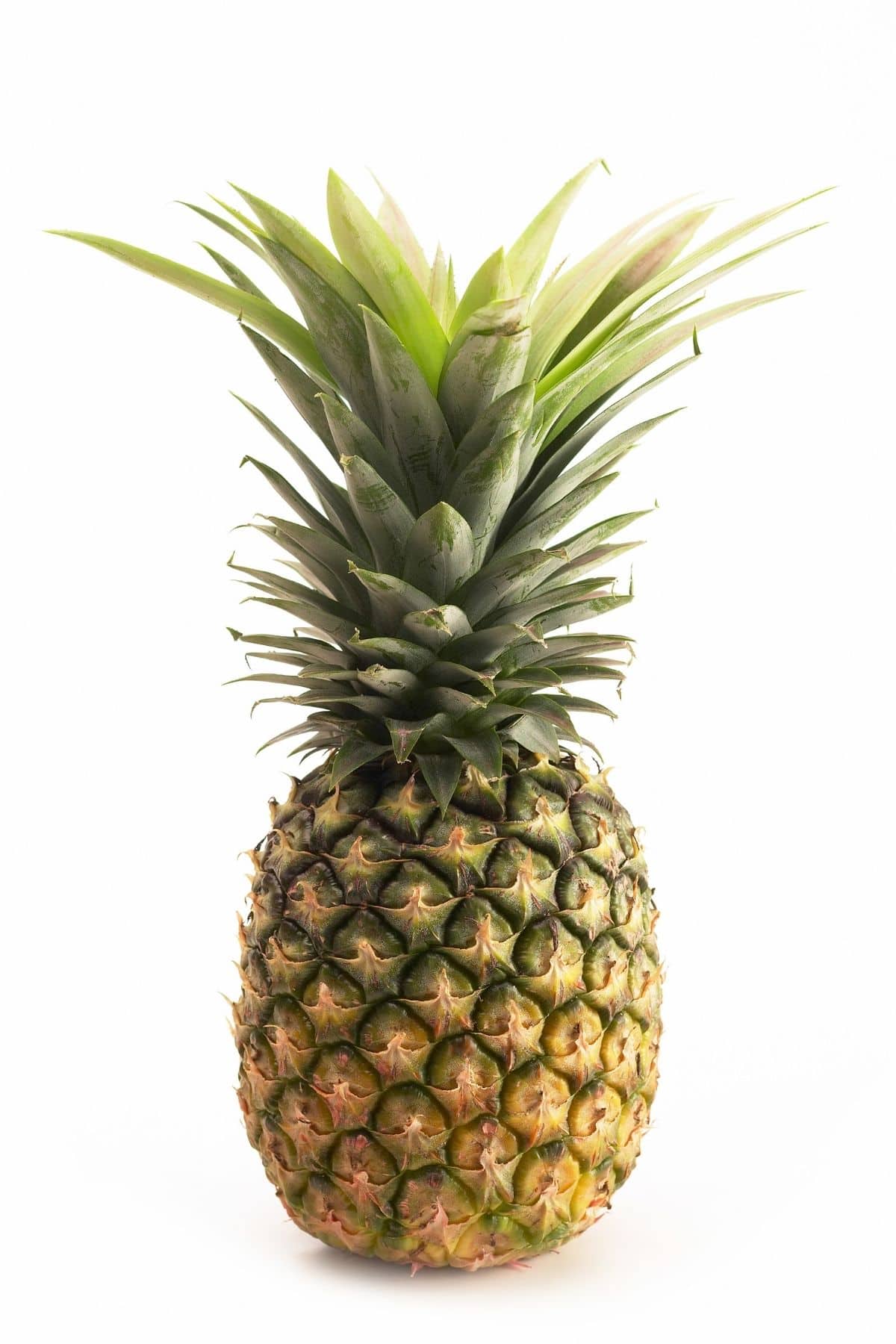
Pineapple has several gut-healing benefits. It contains bromelain, a group of enzymes that makes foods easier to digest. It also has anti-inflammatory properties.
A study in animals showed that bromelain can reduce inflammation and heal ulcers caused by IBS in rats, and further animal studies demonstrated that it can protect the gut from harmful bacteria.
It can be particularly useful for people with inflammatory bowel disorders and has been shown to reduce gut inflammation in conditions like ulcerative colitis and Crohn’s disease.
Pineapple is also great when juiced with vegetables; see my list of the best juices for gut health.
Promoting Good Gut Health
Balancing the bacteria in the gut by consuming the right kinds of foods – particularly those rich in prebiotics and probiotics – is key to good digestive health.
In some cases rebalancing the gut bacteria can avoid the conditions listed here, or at least minimize their symptoms.
When the gut microbiome is healthy, you can digest foods more effectively and better absorb their nutrients. A healthy gut also helps your body eliminate waste products more efficiently.
Additionally, avoiding certain foods and increasing your consumption of others can boost your immune system, help strengthen and repair the lining of your gut, and control inflammation. These are all important factors in preventing many of the common gut issues mentioned above.
As always, you’ll need to contact a healthcare provider to get an appropriate diagnosis and treatment plan.
See my Leaky Gut Diet article that includes a 3-day diet plan. You might also like my article with the best herbs for gut healing.
Foods to Avoid for Good Gut Health
1. Raw vegetables
Recent research has shown that eating cooked food can improve your gut health – but that eating raw vegetables may have the opposite effect. This is because they contain compounds that kill microorganisms which can ultimately destroy the bacteria in our intestines.
Raw vegetables are also very hard to digest because they tend to contain lots of insoluble fiber. This means they can aggravate symptoms in conditions like IBS.
For this reason, I recommend eating only cooked vegetables while you are healing your gut. For example, try steaming your greens before adding them to green smoothies (check out my Kale Green Smoothie with steamed kale) or cooking vegetables like carrots and tomatoes instead of eating them raw.
2. Gluten
Gluten is the protein found in cereal grains like wheat, rye, and barley. It acts as a binder and helps give bread its texture. In some cases, though, gluten may trigger or worsen gut problems.
Not everyone needs to avoid gluten. Indeed, some studies show a gluten-free diet could actually be harmful to some people as it can change the human gut microbiome (microorganisms present in the gut) in unhelpful ways.
But people with celiac disease will need to avoid gluten altogether. It is also best avoided by people with non-celiac gluten intolerance, who tend to experience symptoms such as bloating, gas, and abdominal pain after consuming it.
What’s more, there is research that shows that gluten increases the release of a substance called zonulin, which has been linked to leaky gut syndrome and the conditions associated with it.
See more about the reasons to go gluten-free or my entire index of gluten-free recipes. You may also like this list of the gluten-free carbohydrate foods or this article on a dairy and gluten free diet.
3. Sugar
Too much sugar in the diet is another likely culprit for poor gut health. It is believed to reduce the good bacteria in the gut, potentially leading to leaky gut syndrome and other problems. It is also linked to increased inflammation.
What can make matters worse is that the imbalance of bacteria in the gut can trigger sugar cravings, leading to even higher consumption and compounding the problem!
See my list with the best sugar-free foods or check out these articles about how to beat sugar cravings or how to cut out sugar.
4. Artificial sweeteners
In the effort to avoid refined sugar, more people are turning toward artificial sweeteners. But recent research has suggested that sweeteners like saccharin, sucralose, and aspartame – often found in processed foods and sugar-free drinks – can make “good” bacteria in the gut become pathogenic (disease-causing).
This may eventually lead to damage to the intestinal walls, either triggering gut issues or making the symptoms of existing conditions worse.
I’ve also made a list of the best natural sugar substitutes if you need some help getting through the cravings without turning to artificial sweeteners that can hurt the gut flora and good gut bacteria.
Gut Healing Food FAQs
It depends. Some people may not be able to reverse their digestive issues once they are diagnosed. On the other hand, some people may get relief from symptoms quickly. It’s best to work with a qualified healthcare practitioner to resolve gut and digestive issues.
That also depends! You can likely incorporate these foods into your daily routine.
There are also gut healing supplements that can help. Herbs like slipper elm and marshmallow root are known to help with digestive issues.
A healthy gut is nurtured by a balanced diet rich in fiber from whole foods, fermented products, and hydration. Avoiding processed foods, artificial sweeteners, and excessive alcohol or sugar can prevent disturbances in beneficial gut bacteria.
Incorporating anti-inflammatory foods and healthy fats, like avocados and olive oil, supports the gut lining and overall digestive health. Managing stress and being cautious with medications, especially antibiotics, further ensures a robust gut microbiome.
Several beverages are considered beneficial for gut health, including kefir and kombucha, which are rich in probiotics, and bone broth, which can support the gut lining. Green tea, ginger tea, and peppermint tea offer antioxidants and anti-inflammatory properties, aiding digestion and soothing the gastrointestinal tract. Water is essential for maintaining the mucosal lining of the intestines, while diluted apple cider vinegar may support healthy stomach acid levels.
More Gut Health Diets and Resources
Conclusions
A healthy digestive system has benefits for your whole body! It helps support your immune system, contributes to good sleep, protects against chronic diseases, and can even improve your mood. The gut-healing foods included in this article are easy to incorporate into your everyday diet, giving you the power to improve your digestive health and your general well-being.
Don’t forget to join my newsletter list to get exclusive clean eating recipes and tips. The newsletter is 100% free with no spam; unsubscribe anytime.
About the Author: Carrie Forrest has a master’s degree in public health with a specialty in nutrition and is a certified holistic nutritionist. She is a top wellness and food blogger with over 5 million annual visitors to her site. Carrie has an incredible story of recovery from chronic illness and is passionate about helping other women transform their health. Send her a message through her contact form.
Note: this post is for informational purposes only and is not intended as medical advice. Please consult your healthcare provider for recommendations related to your individual situation.


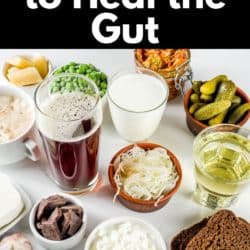
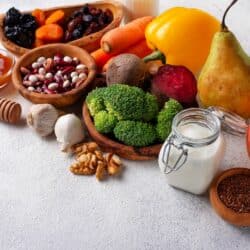
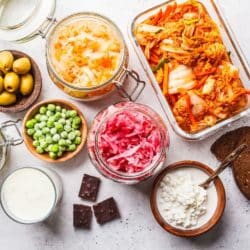
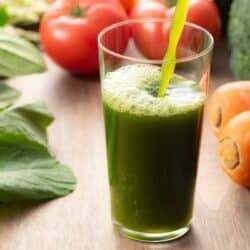



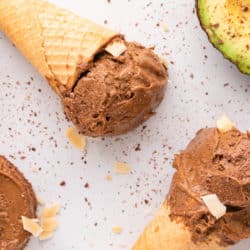
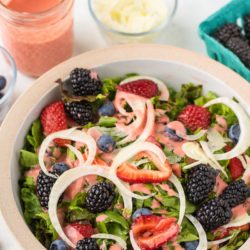
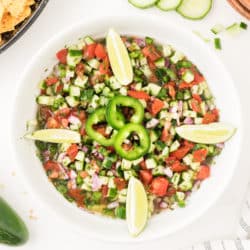
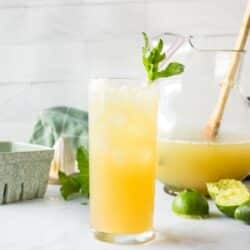




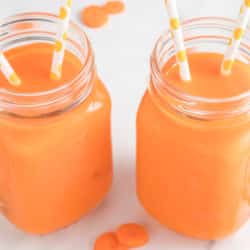



starting with fermented unheated sauerkraut, eat a couple of tablespoons in the morning on empty stomach, green matcha tea, I drink every other day. I also got live active culture yogurt (plan) a couple tablespoons daily. Reduced sugar intake, not completely, eat lots of greens, and wild sprouted broccoli, lemon in my water, etc. it all seems to have change my stomach lining— No medications!!
Thank you for all the info. It’s very much appreciated.
Thank you.
I was very impressed with the research you did for this article. I have IBS and it was a good refresher for me.
My doc. Suggested a whole apple a day, a probiotic, and slight diet change.
What helped me the most was adhering to a basic Paleo diet. Meaning I did not buy any processed foods, but stuck to the natural foods available in the produce and meat departments. I did use coconut milk. As I am dairy restricted and glutin restricted. I cut out surgery foods and white potatoes and green beans as well. Still had plenty to eat.my lab test proved the diet worked. And I felt better. Much better.
I struggled with it after a while because I lost TO much weight. And moved cross country. So added back a few things in moderation. I am sick again. So going back to the more basic Paleo diet.